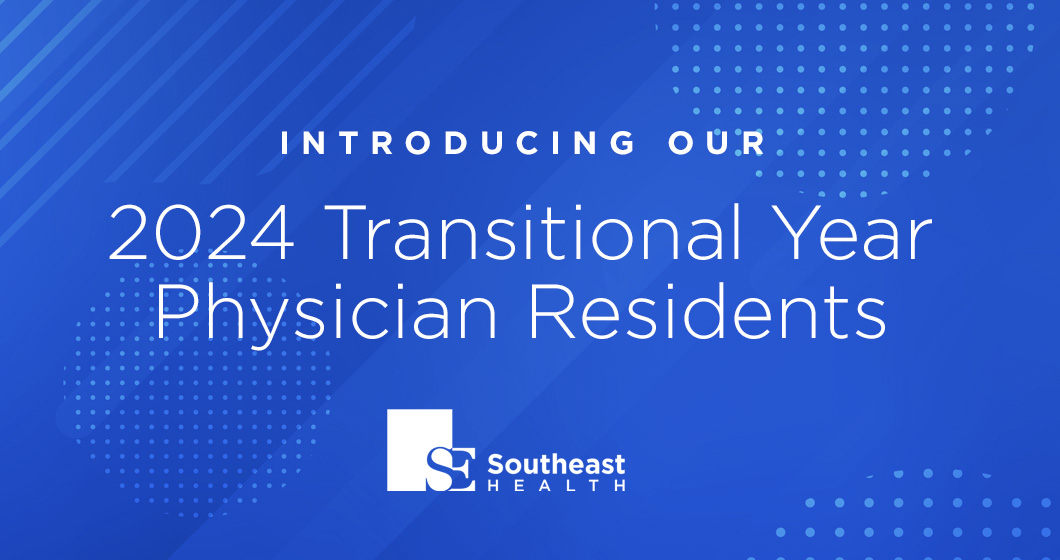
2024 Transitional Year Residency Class
Southeast Health Graduate Medical Education (GME) is proud to introduce this year’s Transitional Year residency class.
The Transitional Year residency is a one-year program that provides a clinical base year prior to an advanced residency. Some of the advanced residencies are Anesthesiology, Dermatology, Neurology, Physical Medicine and Rehabilitation, Radiation Oncology and Radiology.
This year’s class of 12 incoming residents includes Alabama College of Osteopathic Medicine student Jared Hall from Samson, Alabama. In all, the class will include four students from Alabama.
Our 12 residents, who begin on July 1 are:
- Sanjana Sundara Sreenath, MD, Austin, Texas
- Lifei Zhu, MD, Chengdu, China
- Anita Nwiloh, MD, Nashville, Tennessee
- D’Angeleau Newsome, DO, Kansas City, Missouri
- Trevor Decker, DO, Tinley Park, Illinois
- Saru Acharya, MD, Huntsville, Alabama
- Austin Ly, MD, Huntsville, Alabama
- Jared Hall, DO, Samson, Alabama
- Melissa Millett, MD, Miami, Florida
- Andrew Kennedy, MD, Huntington, Indiana
- Katherine Oakley, DO, New Market, Alabama
- Sudharani Kinthada, MD, Aurora, Illinois
“We are proud of our new class of Transitional Year residents who will be preparing to move on to an advanced program next year,” said James C. Jones, DO, FACEP, dean of the Alabama College of Osteopathic Medicine and designated institutional official (DIO) of Southeast Health GME and the residency program. “During the next year we will be training them to be successful in their chosen specialty.”
Approximately 350 candidates applied for the residency program at Southeast Health. The internal medicine team interviewed 120 applicants for the 12 spots. The internal medicine team is comprised of Ravi Nallamothu, MD, transitional year program director and program coordinator Elizabeth Payne.
The Match Process
For applicants, the process of matching to a residency program begins in the fall of their final year of medical school, when they apply to the residency programs of their choice. They interview with programs during the fall and winter. From mid-January to late February, applicants and program directors rank each other in order of preference and submit the preference lists to National Resident Matching Program (NRMP).
About NRMP
The National Resident Matching Program® (NRMP®) is a private, non-profit organization established in 1952 to provide an orderly and fair mechanism for matching the preferences of applicants for U.S. residency positions with the preferences of residency program directors.

